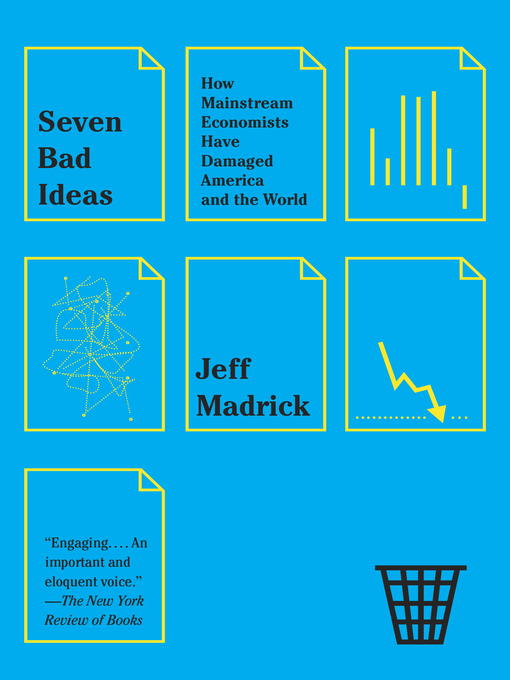
Budget deficits are bad. A strong dollar is good. Controlling inflation is paramount. Pay reflects greater worker skills. A deregulated free market is fair and effective. Theories like these have become mantras among American economists both liberal and conservative over recent decades. Validated originally by patron saints like Milton Friedman, they’ve assumed the status of self-evident truths across much of the mainstream. Jeff Madrick, former columnist for The New York Times and Harper’s, argues compellingly that a reconsideration is long overdue.
Since the financial turmoil of the 1970s made stagnating wages and relatively high unemployment the norm, Madrick argues, many leading economists have retrenched to the classical (and outdated) bulwarks of theory, drawing their ideas more from purist principles than from the real-world behavior of governments and markets—while, ironically, deeply affecting those governments and markets by their counsel. Madrick atomizes seven of the greatest false idols of modern economic theory, illustrating how these ideas have been damaging markets, infrastructure, and individual livelihoods for years, causing hundreds of billions of dollars of wasted investment, financial crisis after financial crisis, poor and unequal public education, primitive public transportation, gross inequality of income and wealth and stagnating wages, and uncontrolled military spending.
Using the Great Recession as his foremost case study, Madrick shows how the decisions America should have made before, during, and after the financial crisis were suppressed by wrongheaded but popular theory, and how the consequences are still disadvantaging working America and undermining the foundations of global commerce. Madrick spares no sinners as he reveals how the “Friedman doctrine” has undermined the meaning of citizenship and community, how the “Great Moderation” became a great jobs emergency, and how economists were so concerned with getting the incentives right for Wall Street that they got financial regulation all wrong. He in turn examines the too-often-marginalized good ideas of modern economics and convincingly argues just how beneficial they could be—if they can gain traction among policy makers.
Trenchant, sweeping, and empirical, Seven Bad Ideas resoundingly disrupts the status quo of modern economic theory.
-
Creators
-
Publisher
-
Release date
September 30, 2014 -
Formats
-
Kindle Book
-
OverDrive Read
- ISBN: 9780307961198
-
EPUB ebook
- ISBN: 9780307961198
- File size: 2024 KB
-
-
Accessibility
-
Languages
- English
-
Reviews

Loading
Formats
- Kindle Book
- OverDrive Read
- EPUB ebook
subjects
Languages
- English
Why is availability limited?
×Availability can change throughout the month based on the library's budget. You can still place a hold on the title, and your hold will be automatically filled as soon as the title is available again.
The Kindle Book format for this title is not supported on:
×Read-along ebook
×The OverDrive Read format of this ebook has professional narration that plays while you read in your browser. Learn more here.